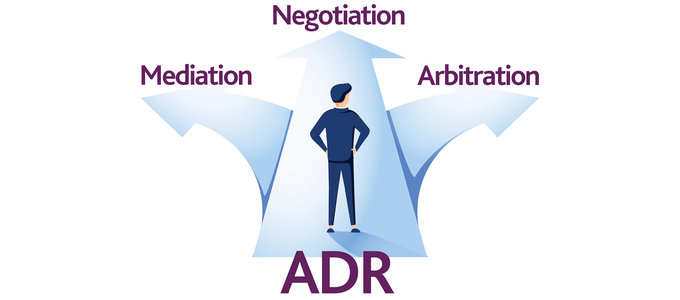Blair Atwebembeire.
Access to justice is a fundamental right, yet the traditional court system often falls short of meeting the needs and expectations of individuals and businesses seeking timely and cost-effective resolution of disputes. Alternative Dispute Resolution (ADR) is a powerful tool that has the potential to revolutionize the provision of justice services. By offering a range of flexible, collaborative, and tailored approaches, ADR can pave the way for a more accessible, efficient, and user-centered justice system.
One of the most significant advantages of ADR is its ability to expand access to justice for all individuals, regardless of their socio-economic background. The traditional court system is often burdened with lengthy procedures, complex legal language, and high costs, making it intimidating and inaccessible for many. ADR methods, such as mediation and arbitration, provide an alternative pathway that is less formal, more user-friendly, and less expensive. This empowers individuals to actively participate in the resolution of their disputes, promoting fairness, equality, and inclusivity.
Traditional litigation can be a time-consuming process, with cases taking years to reach a resolution. Conversely, ADR offers a faster and more efficient alternative. Parties involved in a dispute have the opportunity to select their own mediator or arbitrator, allowing for a more personalized and specialized approach. This choice ensures that the professional handling the case has expertise in the relevant field, leading to a more streamlined process and a quicker resolution. By reducing the burden on overloaded court dockets, ADR helps alleviate the backlog of cases and enables justice to be served in a timely manner.
The financial burden associated with litigation is often a significant deterrent for individuals seeking justice. ADR methods, such as mediation, can be considerably less expensive than traditional court proceedings. The costs of legal representation, court fees, and extensive paperwork are significantly reduced, making ADR an attractive option for those who might otherwise forego pursuing their legal rights due to financial constraints. Moreover, ADR encourages collaborative problem-solving, which can foster more amicable resolutions, thereby saving parties involved from costly and protracted legal battles.
ADR allows parties to craft tailored solutions that address their unique needs and interests. Unlike the rigid nature of court judgments, ADR decisions can take into account specific circumstances, culture, and industry practices, resulting in outcomes that are often more satisfactory to the parties involved. Moreover, ADR methods offer a private and confidential setting, enabling disputing parties to maintain their privacy and preserve their business relationships. This confidentiality encourages open dialogue and increases the likelihood of reaching mutually acceptable resolutions.
As the demand for justice services continues to grow, it is essential to explore innovative approaches that prioritize accessibility, efficiency, and cost-effectiveness. ADR emerges as a powerful tool capable of revolutionizing the provision of justice services. By expanding access to justice, promoting efficiency, reducing costs, and providing tailored solutions, ADR can transform the way disputes are resolved. Governments, legal practitioners, and individuals should embrace and promote ADR as a complementary mechanism to the traditional court system, ensuring a fair, efficient, and user-centered approach to justice for all.
Mr. Blair Atwebembeire is an Advocate of the High Court of Uganda. E-mail: blair.advocates@gmail.com
















2 thoughts on “Transforming Justice: The Revolutionary Power of ADR”